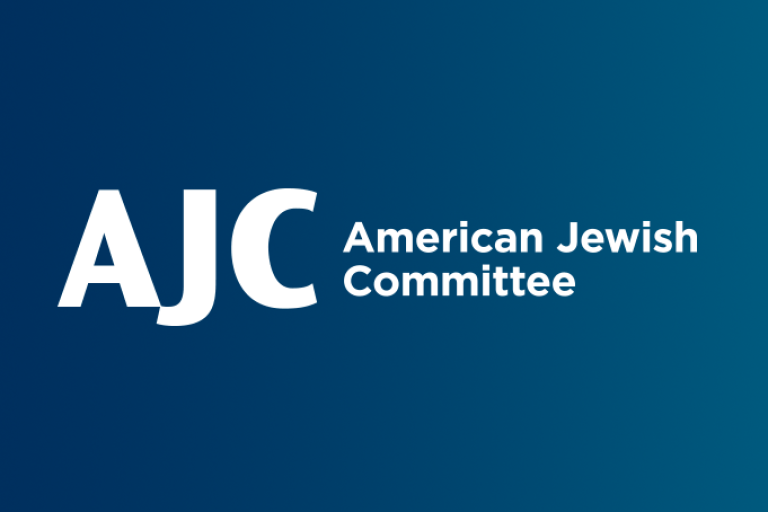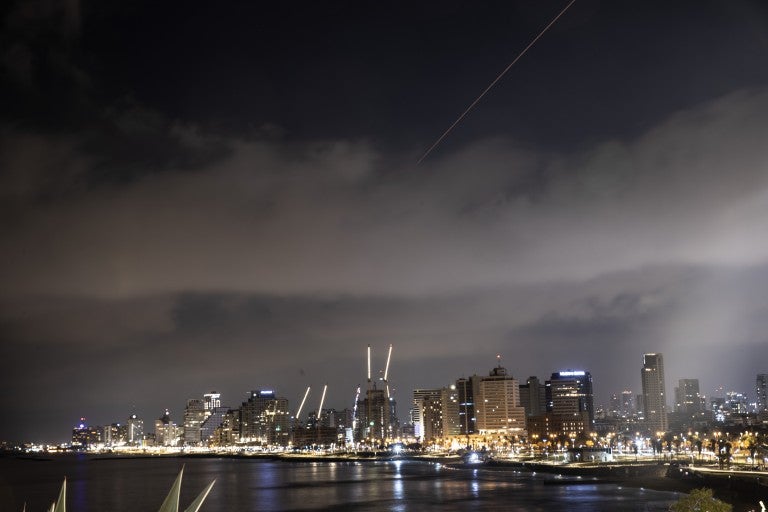November 5, 2018 — Jerusalem, Israel
By Eran Lerman
Prime Minister Netanyahu's visit in Oman – followed up with dramatic visuals published by his hosts soon after he left – is a truly dramatic event, one of the most significant even in a two-year period replete with diplomatic breakthroughs: it was the first of its kind in the Arab world since the heady days of the mid-1990s. It was put together by Yossi Cohen, the Head of the Mossad. In his three years in office, Cohen has revitalized the organization both as a collection agency, occasionally given to acts of derring-do (such as the lifting of the Iranian nuclear archive, which experts now extol as a source of significant new information about Iran's military project) and as Israel's arm for clandestine diplomacy with countries with which we have no formal relations.
In the case of Oman, he had a solid foundation to build upon. Back during the Cold War years, the Sultanate faced a dangerous Soviet-backed insurgency infiltrating from the (now defunct) People's Democratic Republic of Yemen. Israelis were among those who helped the Omanis fight back and defeat the enemy. Later, after Oslo, there was an Israeli diplomatic presence in Oman's capital, Muscat, but it was closed down (like others in Qatar, Morocco, and Tunisia) as Israeli-Palestinian violence escalated in the fall of 2000. Despite that, for more than 20 years Oman has hosted a regional cooperation initiative, the Middle East Desalination Research Center, that was an outgrowth of Oslo, a role that has entailed periodic (but quiet) consultations in Muscat with Israeli diplomats and water experts. Israel, for its part, had a recent cause for grievance, as Oman played host to the first contacts (supposedly secret, but known to Israel) between the Obama Administration and the Iranians back in 2013, when Ahmadinejad, a vile and virulent hater, was still president of Iran. And yet, in the new pattern of preferences in the regional game of camps, Oman now appears to have closed ranks with others in the Gulf in seeking closer cooperation with Israel. In another visit to Oman, Transportation Minister Yisrael Katz presented a vision of (railroad) "Tracks for Regional Peace" that would link Haifa with Jordan – and further, with the Gulf.
Additional evidence of this emerging trend came in Abu Dhabi, as Israel's Minister of Culture and Sport, Miri Regev – a controversial figure in Israel, a loud voice of nationalist sentiments within the ruling Likud Party, and a close ally of the Prime Minister (and his wife) - attended the Grand Slam Judo Tournament, and was lavishly hosted, including a visit to the Grand Mosque (again, the visuals were soon cleared for use by the Emirates). As it happened, she was the person giving the medals when Sagi Muki, an Israeli judoka, won the gold in his category. (In the semi-finals, a potential Iranian champion apparently feigned injury so he would not be obliged to face him!) When the Israeli national anthem was played--as previously agreed with the hosts, and with the firm support of the World Judo Federation--her eyes, and those of many in Israel, welled up with tears. The day after, another Israeli – Peter Paltchik - won the gold, and Hatikvah was again played in a sports event on Arab soil.
‘Oman Will Not Be The Last’
This is but part of a broader dynamic, and Netanyahu openly stated upon his return that Oman will not be the last. Rumors range from Bahrain to points far west. The reason is obvious: that four-letter word again, Iran. There can be no doubt, at this stage, that the JCPOA did not reverse the thrust of Iran's systematic subversion of the existing order across the region, nor the aggressive pursuit of its design to lay siege to Israel and seek her destruction. The indications flow from all directions, from Yemen to Morocco, which recently cut off relations due to proven Iranian meddling in Western Sahara. As the Iranian-backed Syrian regime consolidates control over much of the country, Iraq is beholden to the Iranian-controlled "Popular Mobilization Forces" for their role in defeating the so-called Islamic State, and as the war against Iran's Houthi proxies in Yemen drags on, it should come as no surprise that the beleaguered Gulf states seek an Israeli anchor, not least due to Israel's reach and influence in Washington.
They may be willing to mend other fences as well. Given the immense fallout from the Khashoggi affair, Saudi Arabia is apparently willing to reassess policy towards Qatar (and thus, indirectly, towards Erdogan's Turkey) so as to reduce points of friction. The siege of Qatar by her neighbors has anyway failed to deliver the expected political results. A bid for Sunni unity may be in the works as the threat of Iran's ambitions becomes more acute, and the region may drift into even more turbulent waters as Tehran responds to the new and biting wave of sanctions.
The Palestinian Factor
At this moment, bringing Qatar back into the fold serves Israeli interests, despite the ideological abyss. While many in Israel urge forceful military action, Prime Minister Netanyahu is determined to exhaust the option of indirect diplomacy through the Egyptian intelligence service, a good tool for "plausible deniability," – aimed at achieving an "arrangement" with Hamas in Gaza. This is essentially an outright case of extortion: give us (Qatari) money for salaries and fuel for electricity, and we shall curb the border fence violence and the incendiary kites and balloons. But it can also be viewed as an Israeli victory: a Jihadi organization willing to abandon the fight (for how long?) in return for economic crumbs (tens of millions, not billions). In any case, Qatar is the only plausible "crumb-provider," and thus Israel now has an interest in having the Qataris on board, albeit in a subsidiary role—a very appropriate term in this context.
Meanwhile, are the Omanis mediating between Israel and Mahmoud Abbas, whose visceral anger toward Trump means that the U.S. cannot act as an honest broker as far as he is concerned? At Netanyahu's side, as always, were his wife on one hand and his national security adviser, Meir ben-Shabbat, on the other: the latter is an expert on Palestinian affairs who once commanded the Shin Bet in the South, overseeing all that transpires in Gaza. Abbas was in Oman two days earlier. The Arabs at large may not be "mediators" in the usual sense, but they can help Abbas – in moral and material terms – go through the difficult adjustment to three painful realities:
-- Jerusalem, as Trump implied, is no longer on the table in the way Palestinians and their supporters have traditionally envisioned, and other nations (the Czech Republic, Brazil?) may follow America’s lead.
-- The emerging outline of the "Deal of the Century" (which may be unripe yet – awaiting Israeli general elections in the coming year) will significantly depart from positions, such as the sanctity of the 1967 lines, which are the core of the Palestinian position.
-- In Gaza, the alleviation of humanitarian misery has taken precedence over Abbas’s claims for restoration of his authority.
Insofar as Oman and others can play a role in this painful modification of Palestinian expectations, the visit may yet prove to be of great practical as well as symbolic value.
Eran Lerman is the former deputy for foreign policy and international affairs at the National Security Council in the Israeli Prime Minister's Office. Prior to that, he served as director of AJC Jerusalem.


